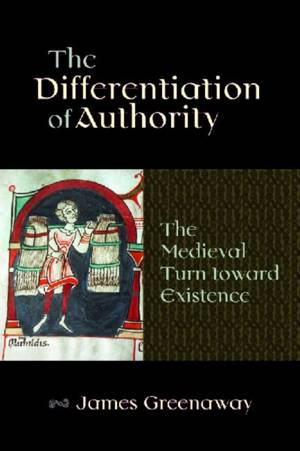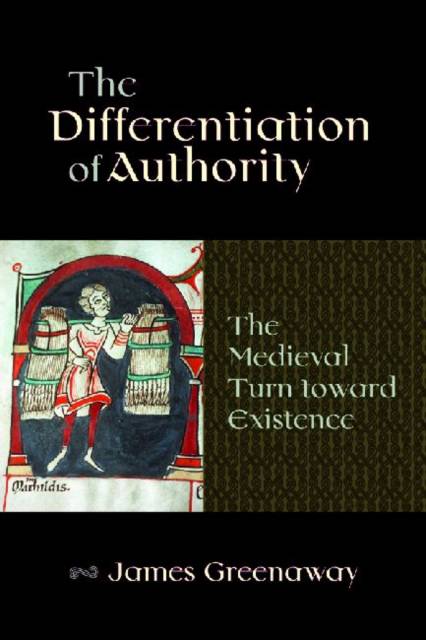
- Retrait gratuit dans votre magasin Club
- 7.000.000 titres dans notre catalogue
- Payer en toute sécurité
- Toujours un magasin près de chez vous
- Retrait gratuit dans votre magasin Club
- 7.000.0000 titres dans notre catalogue
- Payer en toute sécurité
- Toujours un magasin près de chez vous
The Differentiation of Authority
The Medieval Turn Toward Existence
James GreenawayDescription
In this study, James Greenaway explores the philosophical continuity between contemporary Western society and the Middle Ages. Allowing for genuinely modern innovations, he makes the claim that the medieval search for order remains fundamentally unbroken in our search for order today. The new premium on the individual from the twelfth century onward suggests a constellation of problems that had existential, religious, and political dimensions; a constellation that is uniquely Western and which was no less problematic for the medieval soul than it is for the modern soul.
As the Middle Ages began, authority in society was held to have two forms: the political and the spiritual. Greenaway studies the emergence of a new, third notion of authority: the existential. He argues that the upheaval that ensued from a dynamic, but largely invisible, third authority within Christendom led to a crisis of meaning that affected all, but to which only the greatest minds of the time were sensitive.
The tortuous working out of a new order revealed a turn toward existence that inevitably restructured relations among the now three pillars of authority and gradually led to the denouement of the medieval world. The vast historical material presented is loosely circumscribed by the judicious use of Eric Voegelin's History of Political Ideas. Greenaway weighs the contributions of Joachim of Fiore, John of Salisbury, John of Paris, Marsilius of Padua, Dante, John Wycliffe, and Sir John Fortescue among others, and argues that the political work of William of Ockham and the mysticism of Nicholas of Cusa are crucial for understanding the transition from the medieval to the modern world. The study concludes by considering firstly the existential significance of citizenship in liberal democracy and secondly a contrasting, non-Western form of authority in Islam; both of which serve to highlight the achievement of the medieval differentiation of authority and the philosophical uniqueness of Western society.
ABOUT THE AUTHOR:
James Greenaway is assistant professor of philosophy at St. Mary's University in San Antonio, Texas.
PRAISE FOR THE BOOK:
"Greenaway has contributed to the history of Christian society in the Latin west. He gives us important and original insights into aspects of political philosophy. This contribution is indeed very significant in bringing together diverse sources of scholarship in a way that makes possible new forms of analyses and discussions."--Bjoern Thommessen, associate professor emeritus, University of Oslo
Spécifications
Parties prenantes
- Auteur(s) :
- Editeur:
Contenu
- Nombre de pages :
- 309
- Langue:
- Anglais
Caractéristiques
- EAN:
- 9780813219561
- Date de parution :
- 20-03-12
- Format:
- Livre relié
- Format numérique:
- Genaaid
- Dimensions :
- 163 mm x 234 mm
- Poids :
- 657 g

Les avis
Nous publions uniquement les avis qui respectent les conditions requises. Consultez nos conditions pour les avis.






